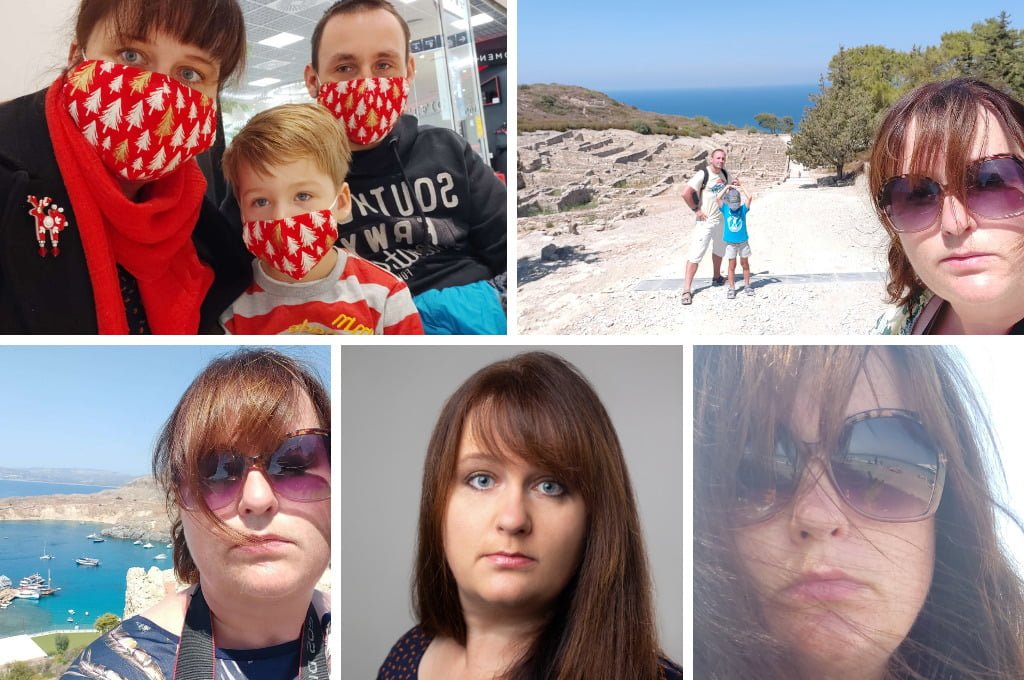Aleksandra Fišer-Filipenko celebrated 15 years with Skrivanek last year. She is a senior project manager who has seen the kind of growth and changes that many companies closely tied to technology have undergone.
Born in Vilnius, Lithuania into an ethnic minority family, Aleksandra grew up to study Russian philology and Slavonic linguistics at Vilnius University. She says this choice sealed her fate in Czechia, where she joined Skrivanek in October of 2006.
Interviewer: Have things changed since you began working at Skrivanek 15 years ago?
Aleksandra: Yes, indeed, a lot of things. Many of us have long histories here, but over the years some colleagues moved on, and my own position in the company has evolved. Technology has advanced, as we see with our Internal System (IS) and various CAT tools. The way our team works has shifted, too. I would say we are closer to each other than ever before, even though our Czech staff is divided between Prague and Brno.
Interviewer: You are a long-time Project Manager for a Language Service Provider, Skrivanek. What does this job entail?
Aleksandra: I fulfill many administrative tasks and in every job that I manage, I have a hand in it from the very beginning through its completion. My role in translation projects includes a lot of communication with clients, service providers, and my colleagues in different Skrivanek departments. I process various clients’ requests and prepare their documents for translation. I assemble translation resources, which includes researching our providers’ backgrounds, and then I also check everything after it has been translated.
Interviewer: What’s your favorite part of the job?
Aleksandra: Surprisingly, my favorite part – after the conversations with my customers – is doing some of the more prosaic activities. For instance, I enjoy preparing documents for translation with different CAT tools. I also really enjoy creating documentation in our IS, an Internal System where we process details about all of our jobs.
Interviewer: What have you found to be the most important qualities in a good Project Manager?
Aleksandra: The most important qualities are flexibility and responsibility, not only toward our clients, but also within our team. Being able to trust each other and to perform in a way that brings out the best in all of us requires certain skills in each individual. And feeling that responsive support from colleagues is so valuable to creating excellence in our final products.
Interviewer: The “flexibility” you mention must include understanding and coping with industry changes. What are some changes you’ve witnessed?
Aleksandra: At this point, clients and providers have improved technical backgrounds. They know more precisely what they need and how the final product should look. The CAT tools we use are more advanced and user friendly. MT gets more effective all the time; this concept was just science fiction when I started in this industry! And Skrivanek itself is a strong, competitive player in the language service industry, with a great strategic position. It’s grown so much and become truly sophisticated over the years.
Interviewer: Can you remember a project where you “went the extra mile” to help a client?
Aleksandra: To be honest, there have been hundreds of those, because all my clients feel like my second family and I wouldn’t like to disappoint them. Of course, as a senior Project Manager I have administrative tasks, too, as I said. But my colleagues and I are always here to help our clients understand exactly what they need in order to achieve their goals.
Interviewer: The path that led you to this job started with studying language itself, as you said at the beginning of our discussion here. What languages have you learned?
Aleksandra: The ones I have used most in the last dozen years are Russian, Lithuanian, and Czech. I attended a school with intensive English teaching and I have continued to use both English and Spanish a lot. During my University studies I immersed myself in Spanish, Czech, Swedish, Italian, Turkish, Slovak, Portuguese, and later German and French, but most of those were just short trips to those cultures through the languages.
Interviewer: What makes you happy outside your job?
Aleksandra: I have been married since 2010. My husband, Petr, and I have a son, Stefan, who is almost 7, and three British shorthair cats, Pavlík, Maxík, and Kačenka. I love to travel, watch science fiction and fantasy movies, read, and play modern board games.
Interviewer: Do you have any thoughts on the role of translation in the global community?
Aleksandra: I believe translation is about creating cultural, political, and practical connections between people from different countries. It’s about sharing knowledge – medical, technological, and scientific advances. Indeed, it is also about improving economics and global business relations by carrying new businesses abroad to create new working places. All of these connections change people’s lives for the better. These words may sound like empty phrases, kind of cliché; nevertheless, I observe that translation works this way and I’m grateful I can be a part of it.

J. V. McShulskis